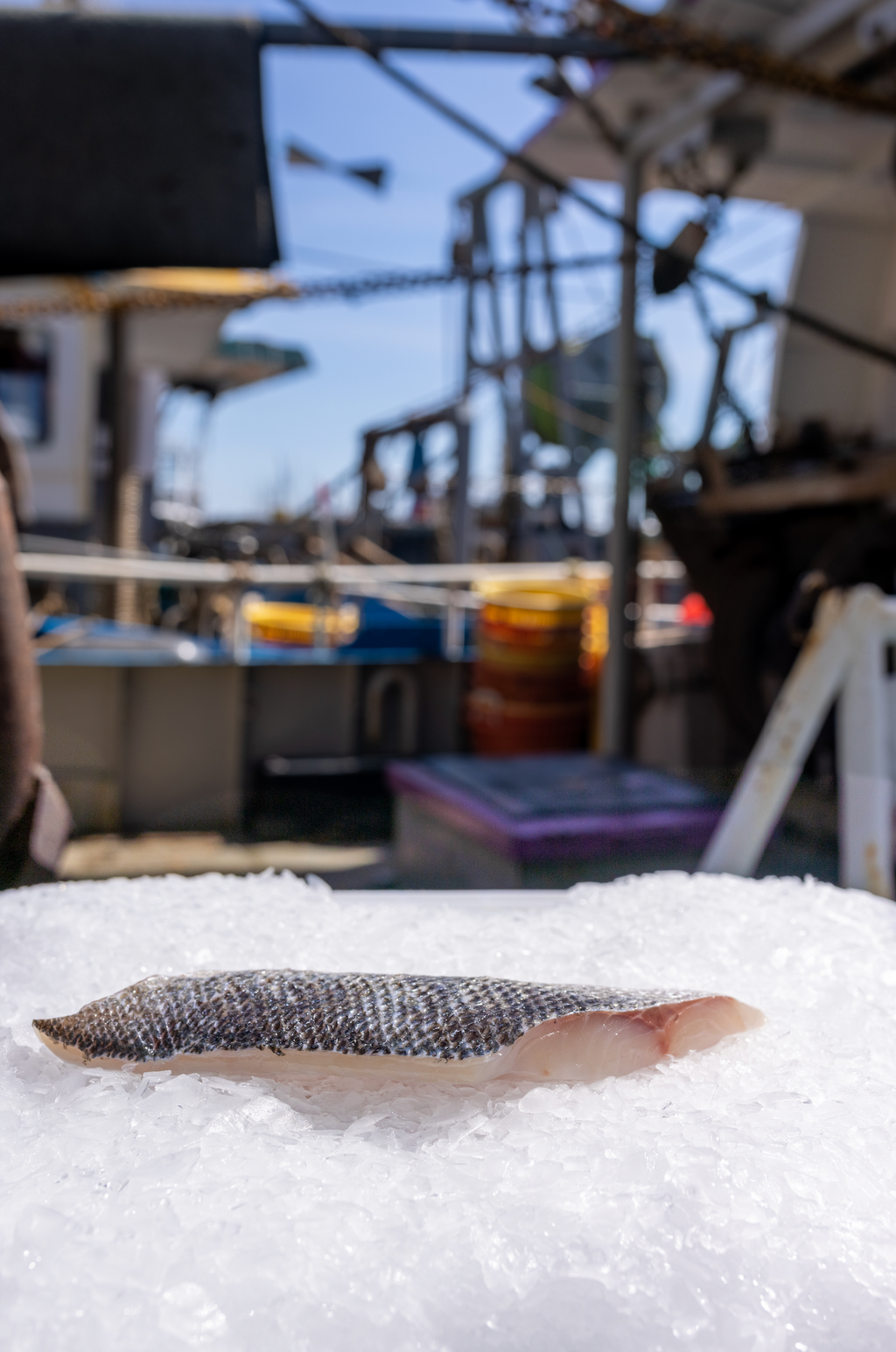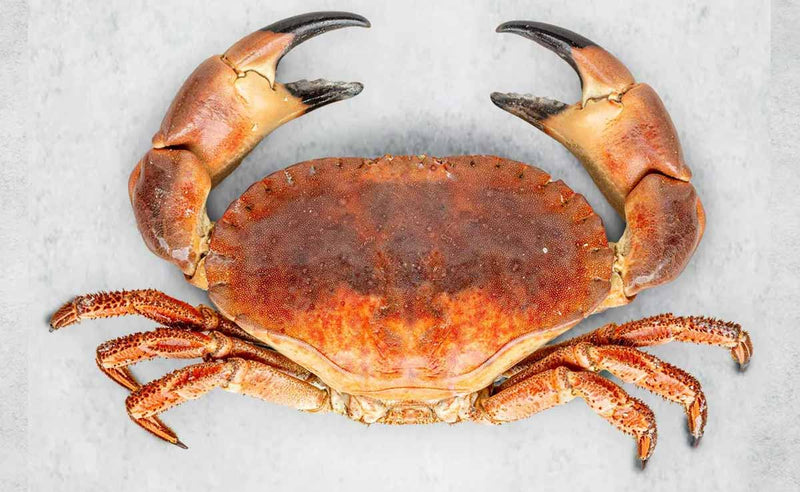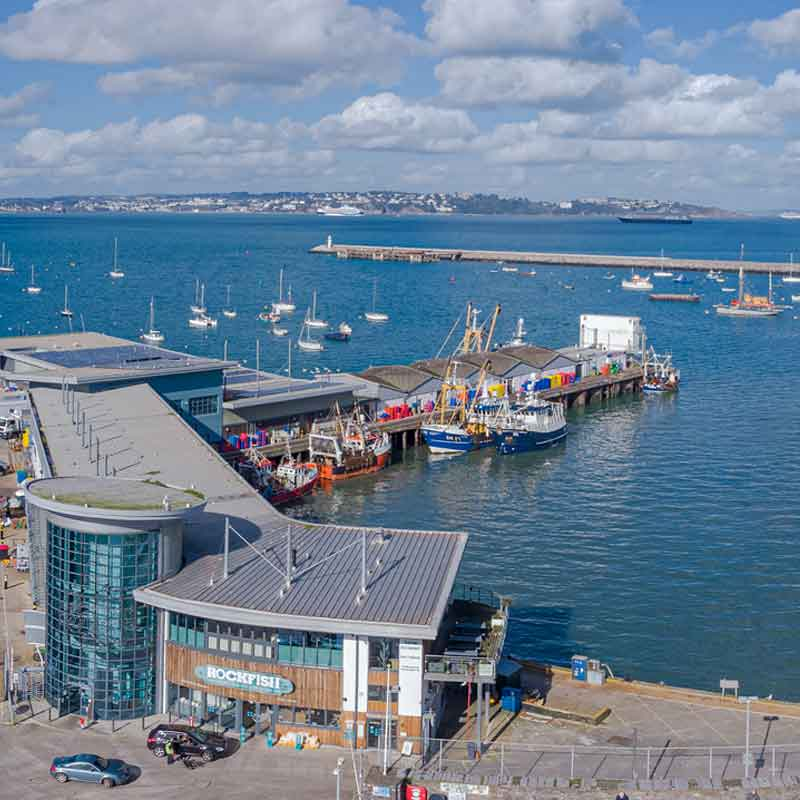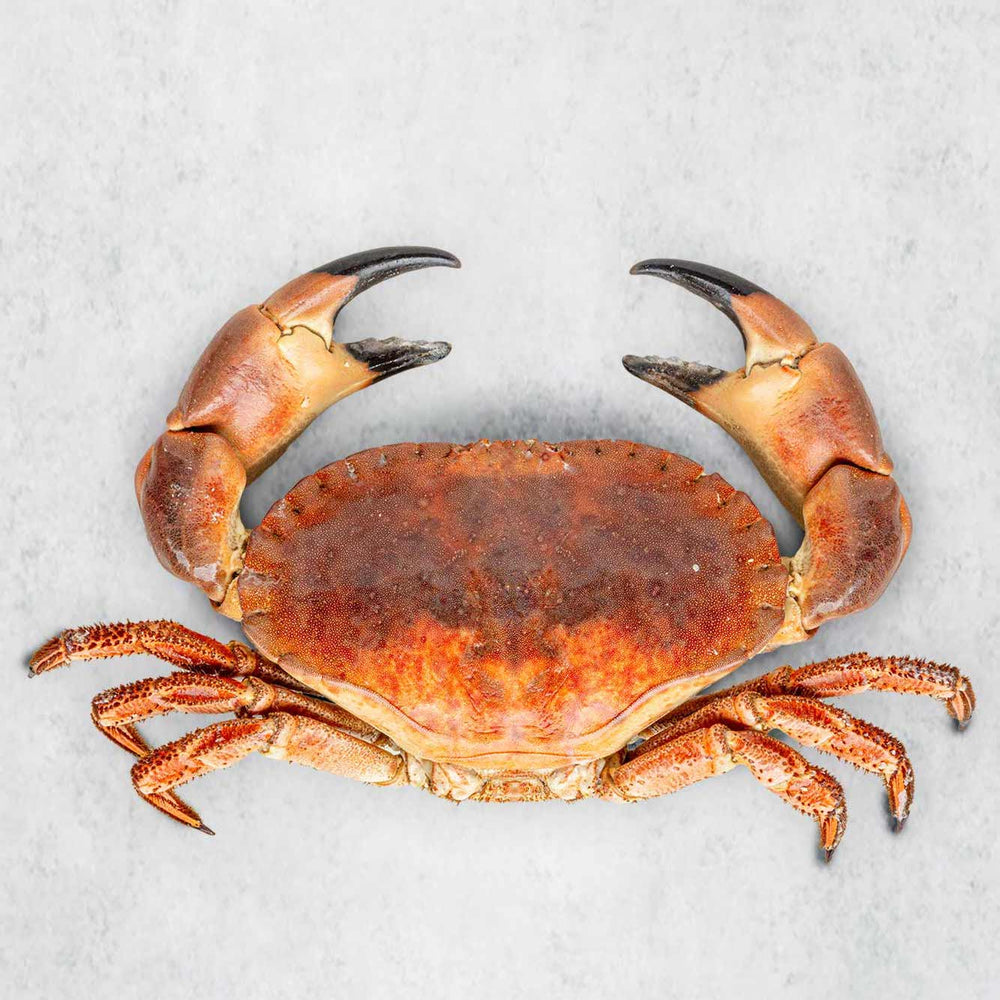How to get amazing quality fish in the eye of a storm
Brixham is accustomed to bad weather. On the night of January 10th, 1866, a vicious storm snarled through the Devon harbour town, making kindling of its world-class fishing fleet.
Hundreds died. Bodies of lost fishermen washed ashore for weeks after. Mangled, limbless, and naked, their clothes ripped from their skin by the unholy power of the storm waves.
Throughout the night wives and mothers of those still lost at sea took to the breakwater to burn their furniture and possessions hoping to create a guiding beacon. Pulling men from splintered ships and the frothing, angry wash. These women, for their bravery, have in history become known as the Brixham Angels.
Since the horrors of the Great Gale times have changed somewhat. This week the country has been battered by storms Isha and Jocelyn, causing travel chaos and flooding across the Country.
For us, this means no fishing, our boat the Rockfisher, like much of the Brixham fleet, is tied up. But thankfully, not much worse. No bodies, no splintered ships. But it occurred to us to ask, why is it some storms have names? And how can we possibly ensure we still get our NHS-recommended “two portions of seafood weekly” when faced with the bared teeth of a violent weather event?
WHY DO STORMS HAVE NAMES?
Across the Atlantic, they’ve named storms since the 50s. The idea is that a named storm resonates with people and will spur action. Nobody ever talks about the “hurricane that hit the south-eastern US in August 2005” but the name Hurricane Katrina remains a chilling, universally known event, bleached onto the fabric of our consciousness.
It wasn’t until storm Abigail in November 2015 that UK storms started getting named. A name is given to a storm when it is expected to reach an amber (‘be prepared’) or a red (‘take action’) warning level.
The warnings are issued by the Met Office National Severe Warning Service when extreme weather conditions like rain, wind, snow, ice, fog and high temperatures are forecasted.
HOW DO STORM NAMES GET PICKED?
The majority of storm names are simply public submissions. The most popular names put forward by the public in any one year make it onto the list.
For the 2023-24 season, the Met Office has slightly changed its methods and has named a few storms after prominent scientists and meteorologists. In the past, storms have alternated between male and female names but that was altered this year to honour the right people.
The list is ordered alphabetically, so the first storm of the season will always start with A. Storm Jocelyn – which this week is set to batter the country with wind speeds of up to 80 mph – marks only the second time the letter J has been reached since the UK started naming storms.
It’s bad luck if your name’s Quentin, Yalonda, or Zebedee because as a rule, no storms get names starting with the letters Q, U, X, Y and Z. If you’d like to suggest your name, you can via email to nameourstorms@metoffice.gov.uk or through an online form.
FISH IN A STORM
At Rockfish we talk a lot about frozen fish – we’re big fans. Back-to-back violent weather events are the proof in the pudding as to why we love the stuff so much.
At times when it’s hard for boats to get out to sea, having fish that was blast-frozen when the weather was good allows us to continue to promote and enjoy the bounty of our British waters.
Unlike in 1866 when a storm meant smashed up boats, a loss of life, livelihood, and no fish, in the modern world even when faced with the glaring eye of a storm you can still tuck into a delicious sea bass delivered directly to your door.
The key to Rockfish frozen fish is that we blast freeze within hours of that fish being caught. It has not been left on a fishmonger’s slab for days hoping to be sold, nor has it been transported across the country to various processing and packaging facilities.
Quite simply the fish sold on the Online Seafood Market has been landed, filleted and frozen. Defrosted its freshness is equivalent to a fish caught that day. Which is great if none have been caught that day!
WHAT DO MORE STORMS IN THE FUTURE MEAN FOR UK FISHING?
Current climate models from the Met suggest that we’re expected to see more winter storms, including disproportionately more severe storms, in the UK in the future. Potentially this means fewer days at sea for our fishermen.
The thing about natural disasters is that they’re only disasters when a human element is involved. The fact that so many people died in the Great Gale of 1866 is down to the fact that they used wooden boats, had limited weather forecasting capability and there was no lifeboat in Brixham.
Today we have this technology and infrastructure and the risks posed by weather events are reduced. But that does not mean they are gone. Demand for fish when the weather is bad drives up the price and in some instances forces fishermen to take unnecessary risks. Blast freezing offers the potential to level out the market, offering a supply of fish when there is none. It allows fishermen to make their profits when it is safe to do so, it puts an end to fish waste and provides market stability.
Adopting a culture of frozen fish eating is a must in these turbulent climatic times. If you want to show the same heroism as that of a Brixham Angel you can, simply by eating frozen fish today.



